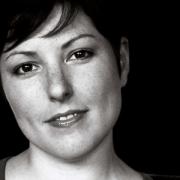Female-Founded Akari Solutions: ‘We Are a Partner With Purpose’
The Scottish Microsoft gold partner says its mission is to drive change through diversity and inclusion in tech.

Female-run Microsoft Gold Partner Akari Solutions is on a mission: to be a “partner with purpose.”
The Glasgow, Scotland-based company is passionate about creating solutions that enable accessibility, sustainability and inclusivity for all people.

Akari’s Margaret Totten
“We believe every single solution we deliver and every single product we build should have a purpose behind it. That purpose could be enabling the hybrid workforce. It could be starting to work after COVID. It could be just making an office more functional and collaborative, or a very high purpose like sustainability, inclusion or accessibility. That’s the sort of company we’re trying to create,” explained Akari Solutions managing director Margaret Totten.
Totten formed the company three years ago with co-founders Kim Totten, Lindsay Climson and Natalie Bell. The company has quickly grown to just under 50 staff, both organically and through acquisition. In 2020 the firm was awarded the Global Diversity and Inclusion Changemaker Microsoft Partner of the Year Award. Customers today include Fortune 500 companies, public sector and major retail organisations in the UK.
‘You Have to See It to Believe It’
Totten grew up in the East End of Glasgow where opportunities were scarce — there was an 80% unemployment rate in the area. At school, she was advised that becoming a secretary was her best option.
Today she is on the board of Women in Technology Scotland, and is passionate about seeing more women in IT leadership positions. She also wants to see an increase in socioeconomic diversity — ensuring opportunities for people regardless of their economic background.
As part of the Microsoft global influencer panel, Akari looks to build solutions to overcome barriers of location, language and access to technology. The firm has also run a kids tech immersion programme that involved taking children from deprived areas into Akari Solutions’ Glasgow offices to see how things run.
“My mum always told me you have to see it to believe it, you have to visualise yourself there. And if you don’t see women from the same background as you, or people from the same background as you, you’re not going to believe it for yourself. That was a big catalyst for me because I realised that tech really is an enabler,” said Totten.
Utilizing Tech with Purpose
Autism and neurodiversity are also subjects close to Totten’s heart. Her son has high-functioning autism and is studying archaeology in a mainstream school; yet, the number of people with autism in full-time jobs or even finishing further education remains shockingly low.
It was this realisation that was the original catalyst for the creation of Akari Solutions, said Totten.
“We looked at the things Microsoft was releasing relating to neurodiversity and thought, there’s a space in the market for an organization that utilizes technology but does it with purpose,” she said.
D&I App
Akari Solutions products today include the Akari Diversity & Inclusion (ADI) conversational app. Available for free on the Microsoft Teams store, it enables users to learn more about Microsoft’s accessibility features, as well as wider D&I topics.
“It will teach you how to use immersive reader if you’re visually impaired or dyslexic. It’ll teach you how to use screen reads. It will also teach you how to be an ally. It’ll teach people who ask the question, ‘What do dyslexia and dysgraphia mean?” And “how can you support someone with autism?’” said Totten.
In the same “tech with purpose” vein, the company has developed a product called EnviroTrak. It enables organizations to track and report their carbon footprints. It provides employees and teams with data-driven insights to help the company achieve its sustainability goals and objectives.
One of the biggest takeaways, said Totten, is that you can have a culture and purpose like Akari Solutions and still be profitable. Indeed, the company is looking to break the £2.5 million profit barrier this year.
“That’s not to say there’s not a place for charities [or] companies that just focus on making money. But people seem to think they work in isolation, and they really don’t,” said Totten. “You can have a company with a purpose and a vision that is still profitable.”
Want to contact the author directly about this story? Have ideas for a follow-up article? Email Christine Horton or connect with her on LinkedIn. |
Read more about:
MSPsAbout the Author
You May Also Like


